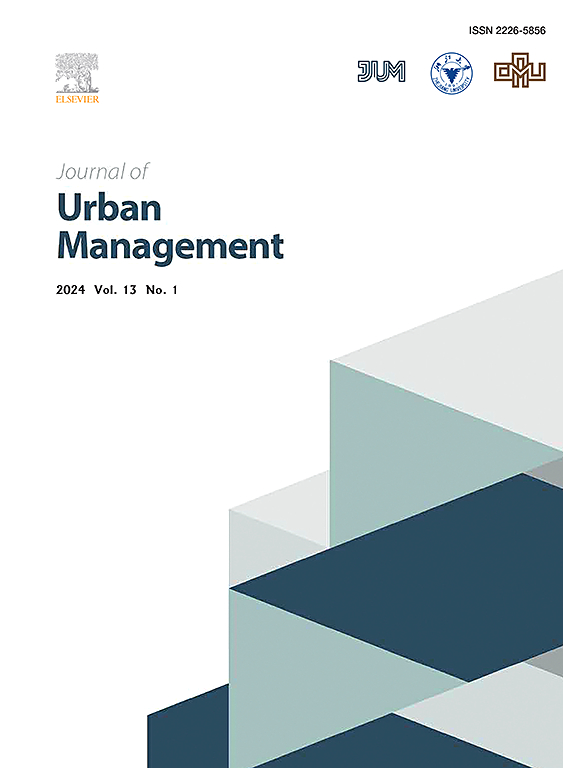智能移动治理中的价值优先级:基于涉众的分析。
IF 5
2区 社会学
Q1 URBAN STUDIES
引用次数: 0
摘要
本研究探讨了利益相关者如何在智能移动治理的决策过程中优先考虑公共价值。我们的见解基于OptiRoutS项目,该项目旨在通过比利时汽车导航中的亲社会路线促进可持续的出行行为。我们特别专注于识别和嵌入社会价值的多利益相关者的决策过程应用混合方法。在确定了比利时交通生态系统的主要利益相关者之后,我们对四螺旋的所有象限(即政府、学术界、民间社会、行业)的利益相关者进行了18次半结构化访谈,以确定交通治理中最重要的驱动因素和价值。在随后的共同创造会议中,我们采用了层次分析法(AHP)方法,以促进协作共识的建立和价值优先级的确定。我们的研究结果突出了流动性背景下决策的复杂性,以及短期和长期价值重要性之间的权衡。这种基于利益相关者的分析为如何将公共价值整合到智能移动治理框架中提供了新的见解。它为旨在平衡技术进步与社会目标的政策制定者提供了指导。该研究为基于价值的治理的更广泛论述做出了贡献,强调了多方利益相关者合作在促进公正和可持续的移动生态系统中的作用。本文章由计算机程序翻译,如有差异,请以英文原文为准。
Prioritizing values in smart mobility governance: A stakeholder-based analysis.
This research examines how stakeholders prioritize public values within the decision-making process in smart mobility governance. Our insights are based on the OptiRoutS project, which aims to promote sustainable travel behaviors through prosocial routes in car navigation in Belgium. We specifically focus on identifying and embedding societal values into multi-stakeholder decision-making processes applying mixed methods. After identifying the main stakeholders in the Belgian mobility ecosystem, we conducted 18 semi-structured interviews with stakeholders pertaining to all quadrants of the Quadruple Helix (i.e., government, academia, civil society, industry) to identify the most important drivers and values in mobility governance. During the subsequent co-creation session, we employed the Analytic Hierarchy Process (AHP) method, to facilitate collaborative consensus-building and value prioritization. Our results highlight the complexity of decision-making in the mobility context, and the trade-off between the importance of values on the short-, and long-term. This stakeholder-based analysis offers new insights into how public values can be integrated into smart mobility governance frameworks. It provides guidance for policymakers aiming to balance technological advancement with societal goals. The study contributes to the broader discourse on value-based governance, emphasizing the role of multi-stakeholder collaboration in fostering just and sustainable mobility ecosystems.
求助全文
通过发布文献求助,成功后即可免费获取论文全文。
去求助
来源期刊

Journal of Urban Management
URBAN STUDIES-
CiteScore
9.50
自引率
4.90%
发文量
45
审稿时长
65 days
期刊介绍:
Journal of Urban Management (JUM) is the Official Journal of Zhejiang University and the Chinese Association of Urban Management, an international, peer-reviewed open access journal covering planning, administering, regulating, and governing urban complexity.
JUM has its two-fold aims set to integrate the studies across fields in urban planning and management, as well as to provide a more holistic perspective on problem solving.
1) Explore innovative management skills for taming thorny problems that arise with global urbanization
2) Provide a platform to deal with urban affairs whose solutions must be looked at from an interdisciplinary perspective.
 求助内容:
求助内容: 应助结果提醒方式:
应助结果提醒方式:


